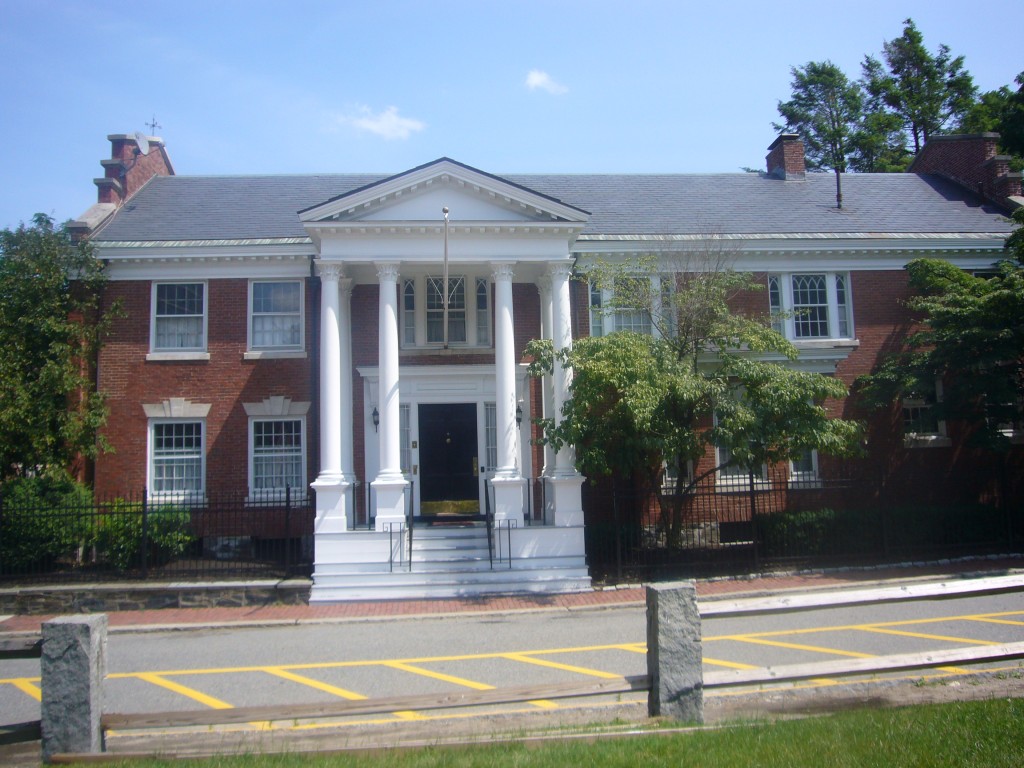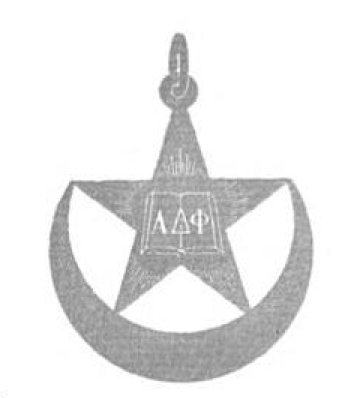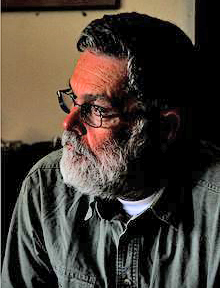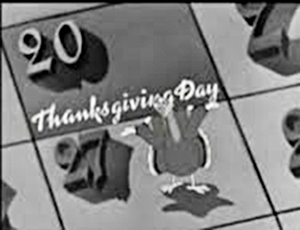When you shop on Amazon, please consider supporting the activities of the Franklin Delano Roosevelt Foundation. You can find more information HERE, but essentially most purchases on Amazon will generate a .5% donation to the charity you select. Best of all, it’s totally free. Just search for the FDR Suite Foundation, Inc. when prompted to name your charity. And thank you!
Ah, The Fly at Last! Or, There and Back Again, A Tale of Retraction
A while back one of our Adams alums, Rick Porteus ’78, who also happens to be the Vice President of the Fly Club Board of Directors, had written to me kindly noting that perhaps it was time to pay a little more attention to the club FDR actually joined, rather than the club he didn’t. Fair enough. And to back up that sentiment, Rick invited a number of us to dinner the night before historian Geoffrey Ward’s lecture. It was a grand affair, made all the more pleasant by the company of Geoff, who sat fireside where FDR surely had, regaling us with fascinating bit of Roosevelt legend and lore. The Club also presented the Foundation with a lovely framed photo of FDR and his Fly Brothers from 1904. This visit got me thinking more and more about FDR and the Fly, and our quest to acquire a Fly Club medal, which coincided nicely with renewed interest at the Fly in its own history. FDR had played a prominent role there: he was club librarian, and eventually sent three sons to the Fly as well.

The Fly Club Exterior. The interior is remarkably preserved and looks much as it did in FDR’s time, especially the library.
Meanwhile, you may remember that recently—after a great search—we found a Porcellian Club medal for Lathrop. Now precisely why we ever thought that Lathrop was a member of the Porcellian is entirely murky. Lathrop’s descendants certainly thought so, having remembered reading it somewhere. I did, too—the part about one roommate getting into the Porcellian and the other getting his dreams crushed (FDR was still smarting 20 years later) has become a potent element of our narrative concerning these two men. How wonderful of them, I always thought, to have overcome what might have proved to be a large obstacle to their continuing friendship.
So, sparked by our visit, we renewed our efforts to find a Fly Club medal for poor old FDR. We’d been looking for a while, but this hunt was complicated. The Fly was originally part of the Alpha Delta Phi fraternity, which was founded at Hamilton College in 1832. Long story short: the Fly seceded not once, but twice from the national chapter, and was in the process of wrapping up this divorce just when FDR was active in the club. These days the Fly sports a leopard rampant on its crest, but previously it had been the star and crescent of the Alpha Delta Phi, which is what FDR would have possessed.
Then enter Elisha Lee ’80, who had come across my postings online, and who as a former collector of Harvard medals—exonumia for those in the know—pointed out to me several facts I had not been aware of, namely that the club medals were generally worn with their club color ribbons, not their class colors as we were showing in the Suite, and suggested several possible venues where I might locate a Fly Club medal. But which medal?
Thus one afternoon while I was stuck on the phone on what seemed an interminable hold, I dashed off a note to Bob Clark at the FDR Presidential Library asking him if perchance they had any Fly Club or Alpha Delta Phi medals in the Museum collection. It was a small chance, but I was banking on two well known facts: FDR almost never threw anything away; and that FDR had maintained an active relationship with the Fly for the rest of his life, even returning to Cambridge as president for Fly events. And sure enough, the Museum did indeed have an Alpha Delta Phi “medal,” inscribed with FDR’s name and class year, sill perfectly preserved in its leather box. Within seconds I was on eBay, looking; and miraculously, there was a vendor with a 1904 “medal” for sale.
Hurrah! But wait: after triumphantly announcing my news, Elisha wrote back to me pointing out that this was the Fly pin, not the medal—a fact that became totally obvious when this tiny, tiny, tiny little box arrived in the mail to reveal a pin the size of my small fingernail. In all fairness, the picture at left was the one I viewed online, never reading the measurements. Caveat emptor! So foiled again! Well, partially: the pin is quite nice, enamel and gold, but oh, ever so small and expensive at $230! (Broad hint for a donor.) But FDR did have one, so it’s absolutely correct.
Ah, but the story gets even better! Elisha also produced the 1907 Fly Club member rolls, and who’s name should appear but Lathrop Brown’s? Uh-oh… A quick search of the FDR bios on hand reveal no mention of our remembered Porcellian association. Uh-ho, Uh-ho. Then a check of the Porcellian records reveals no Lathrop. Big uh-oh. Finally, Rick Porteus chimes in to say they have just received back from the book binder the club minutes from that precise period, and sure enough, Lathrop was not only a member, but also secretary and briefly president! His brother Archie (elder by a year) was also a member, as would be his younger brother Charles in a few years. In fact, Lathrop was a member before FDR, and he and Archie would have voted on FDR’s election.
Fly 2; Porcellian 0.
All this to say that we have been barking up the wrong tree. Howling might be more apt, and it goes to show what happens in history when facts aren’t thoroughly checked: if you repeat a lie often enough, Goebbels once said, it becomes the truth, or in this case, the accepted truth, however erroneous.
 There is still one missing piece to this whole Porcellian-Fly Club biz, which Rick Porteus has promised to check on. Originally, there were only two “final” clubs, the A.D and the Porc, so called because they were the terminal points of the club system. You could only join one. All the others were “waiting” clubs, the Edwardian equivalent of circling the airport, waiting to land. One by one, however, these waiting clubs voted themselves final during this period. Precisely when this occurred at the Fly is still being researched. The only reason this matters is that it rewrites the narrative in a rather potent way: instead of some variant of the oft-used phrase “FDR was forced to settle for the less prestigious Fly,” which occurs in almost every FDR bio, the tale should possibly read “FDR chose the Fly with his Groton chum and roommate Lathrop Brown, but was foiled in his attempt to advance to the Porcellian.” Or, “FDR failed to get into the Porcellian and at the urging of his roommate Lathrop Brown, decided to join the Fly.”
There is still one missing piece to this whole Porcellian-Fly Club biz, which Rick Porteus has promised to check on. Originally, there were only two “final” clubs, the A.D and the Porc, so called because they were the terminal points of the club system. You could only join one. All the others were “waiting” clubs, the Edwardian equivalent of circling the airport, waiting to land. One by one, however, these waiting clubs voted themselves final during this period. Precisely when this occurred at the Fly is still being researched. The only reason this matters is that it rewrites the narrative in a rather potent way: instead of some variant of the oft-used phrase “FDR was forced to settle for the less prestigious Fly,” which occurs in almost every FDR bio, the tale should possibly read “FDR chose the Fly with his Groton chum and roommate Lathrop Brown, but was foiled in his attempt to advance to the Porcellian.” Or, “FDR failed to get into the Porcellian and at the urging of his roommate Lathrop Brown, decided to join the Fly.”
We’ll see how this falls out. Either way it’s not quite the listless casting about portrayed in the history books; it makes great sense that these two life-long friends would have gone to the same club.
These revelations, however, put us in a real bind, because now we need not one but TWO very rare silver medals that look like the one above. If seen, please contact immediately! In the meantime, nostra culpa.
We’re Changing Our Name!
I’m pleased to announce that as of the 1st of May 2014, the Foundation will be changing its legal name from the FDR Suite Foundation to the Franklin Delano Roosevelt Foundation. This will generally be followed in print and online by the descriptive “at Adams House, Harvard College.”
In the six years since our founding, the mission of the Foundation has grown exponentially, and we decided it was time for our name to reflect these new fields of endeavor. The new Foundation will be comprised of three linked departments:
The Suite Museum & Historical Collections division will manage the day-to-day running of the Franklin Delano Roosevelt Suite in Westmorly Hall and maintain the Suite’s collection of almost 2000 pieces of FDR and Harvard memorabilia. In addition, the Suite will continue to sponsor the annual FDR Memorial Lecture, lead Harvard Alumni Association historic tours, and host other cultural events to promote awareness of FDR, Adams House and Harvard College history.
The FDR Global Citizenship Program assumes charge of our non-historical undergraduate and alumni educational programs, including the FDR Global Fellowship, which each year awards summer grants to undergraduates whose international research in the sciences or humanities embodies FDR’s admonition that “that the only way to have a friend is to be one.”
The Foundation’s newest division, the FDR Center for Global Engagement, plans to honor FDR’s legacy by working with practitioners of international relations, global innovation, and public diplomacy on research and programs aimed at understanding and adjusting to the challenges of the 21st century. Jed Willard ’96 of the Harvard Kennedy School has kindly agreed to come on board to lead these endeavors as the Center’s first Director.
Heady times indeed, and all thanks to the continuing support of people like you.
Last Call

Historian Geoffrey Ward is the author of 16 books including three of the principal bios of young FDR
Ladies and gentlemen,
We still have a 10 or so tickets left for the 6th Annual FDR Memorial Lecture, Saturday April 5th, 4 PM with historian Geoffrey Ward. His talk, the Roosevelts at Harvard will be followed by a cocktail reception in the conservatory, featuring our now famous Roosevelt Raw Bar. Tickets may be purchased below. If you are unable to attend, won’t you consider sponsoring a student or tutor? We run our educational programs as a service, not a profit center, and we can always use your support.
Sixth Annual FDR Memorial Lecture, Saturday April 5th 2014: Historian & Author Geoffrey Ward
Looking around snow covered, frigid Boston you would never know it was March 5th, but it’s true! The Six Annual FDR Memorial Lecture is upon us!
This year we are dee-lighted to welcome historian and television writer Geoffrey Ward to Adams. Geoffrey C. Ward, former editor of American Heritage magazine, is the author of seventeen books, including three focused on FDR: Before the Trumpet: Young Franklin Roosevelt 1882-1905; A First-Class Temperament: The Emergence of FDR (which won the Los Angeles Times Prize for Biography, the National Book Critics Circle Award, and the Parkman Prize of the Society of American Historians, and was a finalist for the Pulitzer Prize); and Closest Companion: The Unknown Story of the Intimate Friendship between Franklin Roosevelt and Margaret Suckley. He has also won seven Emmys and written twenty-seven historical documentaries for PBS, either on his own or in collaboration with others, including Ken Burns’ “The Civil War,” “Baseball,” “Jazz,” “Unforgivable Blackness,” “Prohibition” and “The Roosevelts: An Intimate History,” a seven-part, fourteen-hour series on Theodore, Franklin and Eleanor Roosevelt” that will run on PBS this September.
His topic will be “The Roosevelts at Harvard”
We are equally delighted to welcome back Dr. Cynthia Koch, Former Director of the FDR Presidential Library and now Professor of Public History at Bard College (and our 4th Memorial Lecture speaker) who will introduce Geoffrey.
This year is a reception year, as opposed to a banquet year, and comes with all the trimmings: The famous Roosevelt raw bar will return, to accompany cocktails and a book-signing after the reception. (The question before us is which of Geoff’s 17 books we’ll offer!)
This is a once-in-a-lifetime chance to meet the man behind three of the most important FDR bios ever written, not the mention, thanks to his work on PBS, one of the most influential and far-reaching American historians of the last century.
Tickets may be purchased easily on line by clicking the button below. Seats are limited to 50, so they will go fast! If you are unable to attend, please consider donating a place to an Adams student or tutor using the ticket options window below.
Sixth Annual FDR Memorial Lecture
Saturday April 5th at 4 PM
Adams House Lower Common Room
26 Plympton Street, Cambridge Massachusetts
There and Back Again: How FDR Shaped Thanksgiving
 I’ve always been particularly fond of the film “Holiday Inn” with Bing Crosby. You know the one, I’m sure: it introduced Irving Berlin’s “White Christmas” to the world. The gist of the movie is that Bing gives up New York showbiz (and partner Fred Astaire) to retire quietly to Connecticut where he can lie around “doing time, being laaaaazy.” He converts a massive old house he bought into an inn, which will only open on holidays. That’s where the fun starts. Needless to say things don’t go as planned, and by Thanksgiving der Bingle is sitting alone, crooning the ironic “I’ve Got Plenty to be Thankful For,” with his girl in the arms of his old partner and the concept for the inn sold to a movie production company. This being 1941, each holiday is introduced by a little animation: the one for Thanksgiving pictures a turkey, obviously confused, running back and forth on a calendar from the last Thursday of the month to the second to last and back again. What’s going on here? It’s an inside joke, surely, but of what?
I’ve always been particularly fond of the film “Holiday Inn” with Bing Crosby. You know the one, I’m sure: it introduced Irving Berlin’s “White Christmas” to the world. The gist of the movie is that Bing gives up New York showbiz (and partner Fred Astaire) to retire quietly to Connecticut where he can lie around “doing time, being laaaaazy.” He converts a massive old house he bought into an inn, which will only open on holidays. That’s where the fun starts. Needless to say things don’t go as planned, and by Thanksgiving der Bingle is sitting alone, crooning the ironic “I’ve Got Plenty to be Thankful For,” with his girl in the arms of his old partner and the concept for the inn sold to a movie production company. This being 1941, each holiday is introduced by a little animation: the one for Thanksgiving pictures a turkey, obviously confused, running back and forth on a calendar from the last Thursday of the month to the second to last and back again. What’s going on here? It’s an inside joke, surely, but of what?
Well, the answer lies in what some took to derisively calling “Franksgiving.” In 1939 the general manager of the Retail Dry Goods Association wrote to Secretary of Commerce Harry Hopkins warning that the late calendar date of Thanksgiving that year (November 30) would adversely effect retail sales.
Remember this was still the day when it was considered bad form for retailers to display Christmas decorations or have “Christmas” sales before Thanksgiving. With the economy still in a slump, FDR issued a proclamation moving Thanksgiving up a week, to the 23rd.
The plan encountered immediate opposition, especially from Republicans, which was surprising given their pro-business stance. Alf Landon, Roosevelt’s challenger in the 1936 election, called this “another illustration of the confusion which [Roosevelt’s] impulsiveness has caused so frequently during his administration. If the change has any merit at all, more time should have been taken working it out… instead of springing it upon an unprepared country with the omnipotence of a Hitler.” Athletic associations weren’t pleased either: it wreaked havoc with their football lineups. Cities, towns, schools and universities had to alter schedules as well. Overall 62% of Americans opposed the change with 79% of Republicans in the no column. Some began to call it “Franksgiving.”
As FDR’s declaration was based on the “moral authority” of the president, it was up to the states to decide whether or not to implement it. Twenty-three states’ governments and the District of Columbia recognized the non-traditional date, twenty-two states preserved the traditional date on November 30, and the remaining three – Colorado, Mississippi, and Texas – celebrated both dates.
The proposal fared a little better in 1940 & 41, but Congress soon had enough of the confusion. By joint resolution, Congress fixed the date on the fourth Thursday, where it remains.
This little tale has been in preparation for a slight Thanksgiving shift of our own. Last year, as I sat beside my table groaning with goodies, it occurred to me that this would be a good time for the Foundation give back something to our students. About a tenth of the College doesn’t leave campus for Thanksgiving: most of our international students, for example; and those on the West Coast, as well as some who just can’t afford the travel. Suddenly, the College is a rather lonely place for those without somewhere to go. So this year, I decided that we (the Foundation via the new FDR Global Fellowship) were going to spread the Harvard hand of cheer and give an All American Thanksgiving Eve Supper in the Suite. We’ll be moving out the Morris chairs and day bed in a few hours, and 35 students from five continents, five Houses and the Yard, will be joining us for a state-themed menu served buffet style:
• Maryland Jumbo Lump Crabcakes with Chipotle Aioli
• Louisiana Style Mini Pulled Pork Sandwiches
• Hawaiian Coconut Crusted Shrimp with Sweet Chili Sauce
• Missouri Fried Cheese Ravioli with Marinara Sauce
California Big Sur Avocado Salad
• Maine Clam Chowder with Oyster Crackers
•Mini Alabama Pecan Pie
• Mini Florida Key Lime Pie
• New York State Apple Cider & Assorted Beverages
(Those wondering about the logistics of serving so much to so many in such a small space, fear not: we’ve actually expanded down the wide and capacious hallway outside the Suite, the site of our new FDR timeline. With luck this will all be wrapped up tonight around nine, with just enough time for me to run home and get my own preparations underway.) The moral here is simple: while we take the historic preservation aspect of our role very seriously, we’re not slaves to a particular partisan view of the past, and happy, as FDR was, to laugh at past mistakes. Franksgiving was a failure, but the spirit that informed and motivated it was not. “The only way to have a friend is to be one,” FDR once famously said, and hopefully we’ll have 35 new friends tomorrow.
(Oh, and by the way: this supper is financed entirely by the Foundation, meaning by folks like you. If any of you would like to extend the generosity of your table to ours, just click the button below.)
Happy Thanksgiving Everyone!

